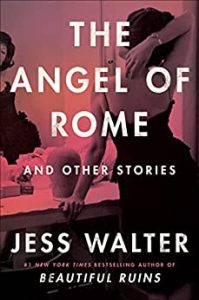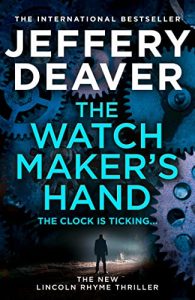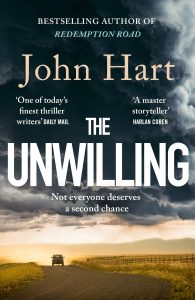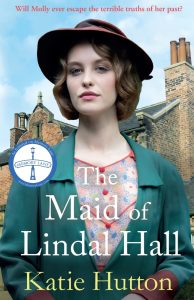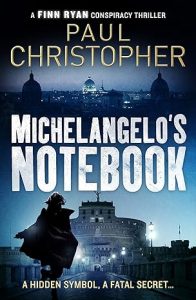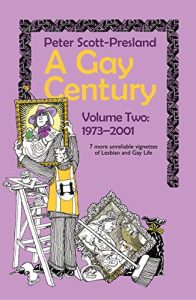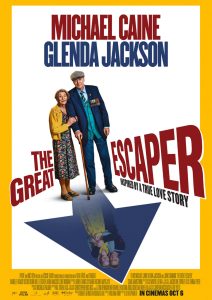What I’m readIng: A year or two of beIng gay
Jess Walter: THE ANGEL OF ROME
I read an enthusiastic review of this short story collection and decided to try it. A widely mixed bunch, several gay-themed. The title story is about a young American theology student in Rome befriending an A-list movie actress (fictionalized: is it Loren or Lollobrigida?) I watched My Week With Marilyn at the same time, which was a lot busier and more entertaining. Similarly themed, ‘Famous Actor’ has a woman in Oregon enjoying a one-night stand with an actor past his prime; some acerbic dialogue and merciless appraisals of his movie career gave this real juice.
‘Town & Country’ is the best of the gay tales. Jay’s widowed dad, a serial adulterer sliding into dementia, doesn’t remember his son came out. A daughter in ‘Mr. Voice’ recalls several weddings and two funerals in her mother’s complex history.
The concluding story, ‘The Way the World Ends’, offers dystopia flavored with graveyard humor. Four climatologists, drunk and stoned, discuss the doomsday scenario for the planet while a mixed-race night porter, newly out, worries about joining a banned Pride march in 1960s Mississippi. Here’s a sentence David Sedaris would be proud of: ‘He wouldn’t mind having a year or two of being gay before getting beaten up for it.’
It’s easy to find echoes of other writers if you look for them. As well as Sedaris, I sensed traces of John Updike here and there, a true maestro to be influenced by. Jess Walter introduces a bunch of highly original characters. He writes extremely well, with occasional flashes of real brilliance. The cover blurb promises a “dazzling collection” of stories: I was duly dazzled.
What I’m reading: Toppling cranes – a new kind of eco-terrorism
Jeffery Deaver: THE WATCHMAKER’S HAND
The crane attached to a 78-storey building project collapses into a street in Manhattan after acid eats through the metal plates securing its concrete counterweights. Only one person is killed, but the damage is immense. A new eco-terrorist announces to the media that more cranes will be toppled unless the city commits to build more low-rent homes. Paraplegic detective Lincoln Rhyme investigates and soon learns that the perpetrator is an old enemy of his, a mercenary assassin known as The Watchmaker. And his real target is not Affordable Housing but revenge on Lincoln who thwarted him previously.
A cat-and-mouse game is under way. Can Rhyme and his team identify the next target building before The Watchmaker brings another crane down? And who at police HQ or City Hall is leaking details of the operation to the terrorist?
This is the fifteenth instalment of Jeffery Deaver’s Lincoln Rhyme series, which began with The Bone Collector in 1997 (memorably filmed with Denzel Washington as the wheelchair-bound investigator). Rarely has a crime thriller equalled that ground-breaking debut, but The Watchmaker’s Hand is close to Deaver’s top form – terse and tense, expertly plotted and brilliantly exercised. The book has a lengthy ‘coda’ which gives the story an extra grandeur.
Unputdownable reads are not easy to find in the age of AI and streaming networks, but here’s one that will nail you to your seat.
What I’m reading: Thrillers don’t come better than this
John Hart: THE UNWILLING
North Carolina, 1972. In a grungy suburb of Charlotte, Jason French, a Vietnam war hero who ended up with a dishonourable discharge, comes home after a spell in prison for crimes of violence. His father is a police detective. His parents and 18-year-old brother Gibson are still mourning the death of Jason’s twin brother, also in Vietnam. Within days of Jason’s return a local good-time girl is horrifically tortured to death. The killer leaves evidence which frames Jason for the murder. His father and brother separately try to locate the real killer, a sociopath hired by a Death-Row prisoner known only as X, the most chilling psychopath since Hannibal Lecter.
The book is narrated from several viewpoints, including three of the Frenches and Reece, the killer-for-hire. As well as a crime procedural, this is also a story about fractured families, especially about brothers. And teenage Gibson falls in love for the first time with a local girl who becomes a potential target for the sociopath. Tenderness and terror side-by-side: a potent mix.
John Hart, like Hannibal Lecter’s creator Thomas Harris, takes a few years to produce each new book, but they are, like Harris’s, well worth the wait. Stylistically arresting and cunningly plotted, The Unwilling is an A-list example of the psychological thriller. They do not come better than this.
My only complaint is that the publishers have economised on paper by printing to the very bottom of each page, omitting the normal margin; sorry to say this, but I hope Bonnier Books will risk cutting down a few more trees in future (recycling better).
What I’m reading: Enthralling saga in the Thomas Hardy tradition
Katie Hutton: THE MAID OF LINDAL HALL
Katie Hutton’s trilogy of Cumbrian family sagas becomes a quartet and advances to the 1930s. Annie of Ainsworth’s Mill is now Annie McClure. She and her husband Robert run a foster home for children who would previously been consigned to the workhouse. Her latest protegee, Molly Dubber, follows other orphaned girls into domestic service, initially with a dotty old spinster who is being drugged into near-unconsciousness by her malevolent companion.
Molly’s next posting is to Lindal Hall, the mansion home of Mr Gascarth, a kind and decent man who has nightmares about the trenches in the Somme. Recognizing Molly’s intelligence, he advances her education to improve her prospects. He also falls in love with Molly, who is torn between her employer and another young veteran, her foster-mother’s stepson, blinded in France and now making a precarious living as a piano-tuner. And Molly has yet to learn the truth about the terrible event that orphaned her into the care of the McClures.
In a lesser writer’s hands this could be a sloppy romance from the Barbara Cartland school. Katie Hutton has been influenced by writers of a greater calibre. As in her previous sagas, Elizabeth Gaskell and Thomas Hardy come to mind. Although Molly Dubber is cut from a different cloth than Far From the Madding Crowd‘s Bathsheba Everdene, her romantic dilemma is a similar one, and it’s easy to see elements of Mr Boldwood and Gabriel Oak in her two admirers (a Captain Troy figure has only a fleeting role). If Gaskell and Hardy have inspired Katie Hutton, she does them proud. The Maid of Lindal Hall is an enthralling story, beautifully told.
What I’m reading: Dan Brown-style thriller that’s better than Dan Brown
Paul Christopher: MICHELANGELO’S NOTEBOOK
Not a new paperback, one I missed previously, the first in a promisingly juicy series of conspiracy thrillers.
Finn Ryan, an art history student from Ohio, has two summer vacation jobs in New York: one as a nude model for a group of amateur artists, the other doing an inventory audit for a major art gallery. In the back of a drawer she comes across an unrecorded drawing of a dissected corpse that has all the hallmarks of Michelangelo. Within hours Finn’s boyfriend and the director of the gallery are both gruesomely murdered. Finn goes on the run with an antiquarian bookseller following links to a lost collection of looted Nazi art treasures. The Vatican-appointed assassin is hot on their heels.
The potboiler plot has some over-egged elements, such as the flashbacks to a convoy of trucks carrying the looted paintings at the end of WW2 and a provocative scandal involving Eugenio Pacelli, Pope Pius XII.
The title and the cover place Michelangelo’s Notebook firmly in the Dan Brown canon, although Paul Christopher writes a more elegant prose than Mr. Brown. The sheer pace and scale of the story have pleasing echoes of the rip-roaring Nicholas Cage National Treasure movies.
What I’m reading: the changing lives of gay men and women
Peter Scott-Presland: A GAY CENTURY Volume Two
The second volume of Peter Scott-Presland’s short plays chronicling the lives of gay men and woman through the twentieth century takes us from the 1970s to the millennium – three decades which saw huge changes to laws and attitudes in the UK and most of the world. Section 28 is revisited, and the legislation to legitimize same-sex partnerships and marriage and gay parenting.
In an ironic twist on the grim reality of the Aids pandemic, ‘Quarantine’ imagines that Health Secretary Norman Fowler was empowered to intern anyone with (or even suspected of having) HIV in prison camps on the Isle of Man. Comedy with a dark edge.
These playlets are written to be spoken or sung. As operettas they would be in the style of Brecht rather than Puccini; there are no soaring arias and the language is everyday. The opening chapter in Volume One, with Queen Victoria visiting Oscar Wilde on his deathbed in a Paris fleapit hotel and pirating lines from his plays, remains my personal favourite, as fruity as a Christmas cake, not quite equalled by anything in Volume Two. Victoria and Oscar, with others from the series, make ghostly cameo appearances in the seventeenth and final play, ‘Two Into One’, which has Ken Livingstone among the supporters of two old queens – make that two ancient queens – on their wedding day, a pair as dated and waspish as Derek Jacobi and Ian McKellen in ITV’s weirdly old-fashioned sitcom Vicious.
A Gay Century is an imaginative triumph. Bravissimo, Peter Scott-Presland!
Who inspired soap diva Tawdra Thanatos?
Bonham Carter gives a fruity performance as Crossroads diva Noele Gordon. But which star of which Soap do you think inspired Tawdra Thanatos, the uber-bitch queen of Eldorado, the Florida-based soap in my novel SOAP-STUD & BLUE-MOVIE GIRL?
Read Extracts from the novel by clicking on the links. And post your “theories” about Tawdra in Comments!
What I’m watching: Intense gay Italian drama – Brokeback intense
NUOVO OLIMPO
(Netflix)
Netflix has become a notable stable for LGBT-themed movies and TV series. Nuovo Olimpo is the latest, a one-off Italian feature centred on the aborted romance between Enea (Damiano Gavino), a young film director, and Pietro (Andrea Di Luigi) an ophthalmologist new to the gay scene. They meet in the Nuovo Olimpo fleapit cinema in the 1970s, a notorious gay cruising ground that is Rome’s equivalent of London’s Biograph cinema (aka “the Bio-grope”). A passionate affair is cut short when the cinema is invaded during an anti-fascist demonstration and they lose contact.
Ten years later Enea has made a movie about their brief fling, and a re-encounter is narrowly missed. More years pass: Ennea has a doting husband and Pietro a wife who is sensitive to the gap in his life. An accident on a film set brings the two men together in the eye hospital and offers the opportunity to relight the flame between them. A “will they/won’t they” moment gives the movie a soap-opera climax.
The intensity of the early sex scenes is more than a little reminiscent of Brokeback Mountain (as in other Netflix productions full-frontal nudity takes the movie to the vertiginous edge of lite porn). The story also has faint echoes of Theorem, Pasolini’s pansexual odyssey which seemed extremely bold and weird in 1968 and might still seem pretty far out in 2023.
Nuovo Olimpo isn’t weird but it is a full-on exploration of gay and bisexual love, written and directed with a rare sensitivity by Ferzan Ozpetek and beautifully played by the two handsome leads. This is a must-see drama whose appeal, very much like Brokeback Mountain, extends far beyond the gay audience.
What I’m reading: Corruption in the Kremlin – and elsewhere
DANIEL SILVA: The Cellist
This is the 2021 “operation”, which I somehow missed, featuring Gabriel Allon, the art restorer and former assassin who is now the head of Israel’s secret intelligence outfit – “The Office”, as it’s known.
The target this time is Arkady Akimov, a Russian oligarch who manages the investment of the billions of dollars that flow into the coffers of the country’s corrupt and tyrannical president, whom some people call “the Czar”.
To bring down Akimov, Gabriel recruits Isabel Brenner, a young German banker who has recently whistle-blown the machinations of a bank deeply involved in money laundering and sanction-busting activities. Isabel also happens to be an accomplished cellist – hence the book’s title. Akimov has an eye for a pretty face, and Gabriel hopes to infiltrate Isabel into the management of the oligarch’s funds and bring him down, together with his boss in the Kremlin. “The Russian president is not a statesman, Isabel,” Gabriel tells her. “He is the godfather of a nuclear-armed gangster regime.”
No prizes for guessing who the gangster president is, nor his opposite number in Washington who is contesting the result of the election that has removed him from office even as the novel’s events are unfolding. In the text Daniel Silva doesn’t name either of these presidents, although the Russian is referred to sometimes as Vladimir Vladimirovich or Volodya, Putin’s patronymic and his pet name (if we can imagine Putin being anybody’s pet).
This is arguably Daniel Silva’s most important novel to date. In a lengthy Author’s Note at the end of the book he re-examines some of the “evidence” for Putin having interfered in the election that brought Trump to power; he also suggests that there were undocumented meetings between the two men during Donald’s time in the White House.
The politics and financial chicanery that make up most of The Cellist make for an occasionally stodgy read. The one high-octane scene, a chase in the French Alps, is too much like an outtake from a Bond movie. This is a book which, like many of John Le Carré’s novels, clearly draws on the author’s concern about the great issues of the times we live in. A fictitious story of corruption in the Kremlin and the White House is based on the belief that there is or has been corruption in these seats of power.
David at the movies: Goodbye to a magnificent actress
The Great Escaper
This is mainly going to be remembered as Glenda Jackson’s last movie, and what a glorious swansong it is. Her ancient, heavily lined face – far removed from the face of Elizabeth the First, the role that sealed her stardom in 1971 – conveys shades of emotion that not all actresses can hint at. She’s playing Irene Jordan, the wife of Bernard (Michael Caine) who has gone AWOL from the care home in which they live, taking himself off to Normandy to attend the 70th anniversary commemoration of the D-Day landings.
This is another of those small movies with a big heart. Nothing very dramatic happens (apart from brief flashbacks to D-Day which Bernard’s best pal did not survive). John Standing has a nice supporting role as another veteran who takes Bernard under his wing; there was a hint of camp in Standing’s performance, which made me think an LGBT ‘attitude’ moment could and should have been shoe-horned in.
Michael Caine has weathered the years better than Jackson (or he’s had some work done, which Glenda very clearly has not). His performance is not quite as subtle as hers, but this is a beguiling and totally believable reconstruction of an episode which made the papers back in 2014. A couple who have loved each other for seventy years are two people you have to take your heart.
* * * * * * * *
RIP Glenda, one of the finest actresses Britain ever produced. And Happy Retirement to Sir Michael, who has given us a great deal of pleasure in a long and splendidly wide-ranging screen career

